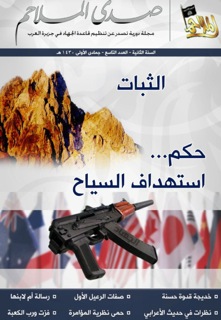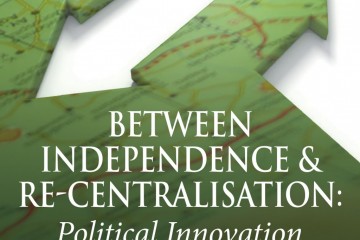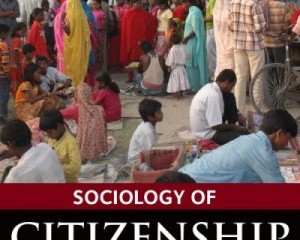
Oxford’s Elisabeth Kendall on Jihadism and the use of poetry
What is it that turns peace-loving Muslims into militant Islamists? There are many answers to this complex question. One angle that might not naturally spring to mind is poetry. Yet this is what Dr Elisabeth Kendall argues in an interview for BBC Radio 4’s “The World This Weekend” with Mark Mardell.

Between Independence & Re-centralisation: Political Innovation in an Age of Devolution
In 2014 the push for devolution became a major political issue. Scotland remains in the UK, but only after last minute bargaining devolved further powers to Holyrood. This has encouraged calls for more devolution of powers to Scotland, Wales, Northern Ireland and for the formation of an English parliament. George Osborne’s Autumn Statement proves that Westminster is listening. Meanwhile, MPs and local governments want more powers entrusted to local authorities. Manchester is following Bristol’s lead in appointing a mayor.
The UK is not alone in this trend. Emboldened by the experience in Scotland, Catalonia held an independence vote of its own, even if unrecognised by the government in Madrid. Legal or not, that vote may also boost efforts in the Basque Country, Bavaria and Flanders.
While these votes may prove unsuccessful, the tension surrounding them will linger. The issues depend on the contextual consequences of the increasing trend towards devolution. There are two forces operating in two different directions: on the one hand, city/regional small nations are demanding Independence from their referential nation-states, while on the other hand, nation-states themselves are re-centralising or decentralising their structures and powers.
Over the coming months, this Special Series will focus on the diverse angles to this debate by identifying and emphasising certain innovative and thought provoking case studies for the purpose of comparison.
Posts will cover topics like the re-scaling of nation-states, constitutional change, the right to decide, independence movements, the federal EU hypothesis, the Europe of Regions approach, democratic participation and civic nationalism in relation to city-regions.

A preamble for a written constitution in the UK
Recently the Political and Constitutional Reform Committee ran an open public competition to find who can write the best Preamble – or introductory statement – for a modern Written Constitution for the UK. We are delighted to announce that Richard Elliot, a DPhil student at Jesus College, Oxford, was selected as winner in the public category. His Preamble reads, United, we stand in celebration of the diverse voices that make up the great chorus of our nation. Confident in our individuality, and steadfast in our shared values and common purpose, we—the citizens of the United Kingdom of Great Britain and Northern Ireland—have come together in the spirit of self-determination in order to establish the principles of our law and governance. By this …

The Sociology of Citizenship
Political theorists, sociologists and anthropologists are increasingly open to the idea that citizenship goes beyond the legal status conferred by states upon individuals in a national political community. The contributors to this series will focus on the concrete, empirical ways in which people make meaning of citizenship and the manner in which they forge and imagine membership in the political community. Contributors will draw on their on-going research in different parts of the world, including South Asia, the Middle East, Eastern Europe, Africa and Latin America.

The Great Charter Convention
Next year is the 800th anniversary of Magna Carta. Following the independence referendum in Scotland, calls for a constitutional convention are widespread and growing. Politics in Spires, together with OurKingdom, IPPR and the Department of Politics at the University of Southampton, are hosting the Great Charter Convention – an open, public debate on where arbitrary power lies in the UK today and how we should contest and contain it. What would a new Magna Carta say, and what could a new constitutional settlement for Britain look like?
The Arab Uprisings in Historical Perspective: Interview with Dr Eugene Rogan
Dr Eugene Rogan, Director of the Middle East Centre at the University of Oxford, sat down with Politics in Spires to discuss our new series “Revolutions in the Balance” and to help place the Arab Uprisings in historical perspective. The full interview can be viewed below:
Rosemary Bechler discusses openDemocracy and its aim to be a public service on the web
This clip was taken from a conference entitled ‘Academic Blogging: Political Analysis in the Digital Age’, which was hosted by the Department of Politics & International Relations. It was held in the Manor Road Building, Oxford on 25 February 2014.
Gendered Violence in Conflict
Dr Elizabeth Frazer is head of the Department of Politics and International Relations at the University of Oxford. Her current research interest is in studying ‘what politics ought to be’ and ‘political virtue’ by way of critical study of the thought of figures including Max Weber, Hannah Arendt, Isaiah Berlin, and also Rousseau and Wollstonecraft. Katharine Millar is a DPhil (PhD) candidate in International Relations at Somerville College, University of Oxford, supervised by Dr. Elizabeth Frazer. In her work, Katharine examines discursive representations of the military – and “Support the Troops” discourses in particular – in relation to the formation of collective identity and the construction and conduct of force-related aspects of foreign and military policy. Here, they discuss the …










